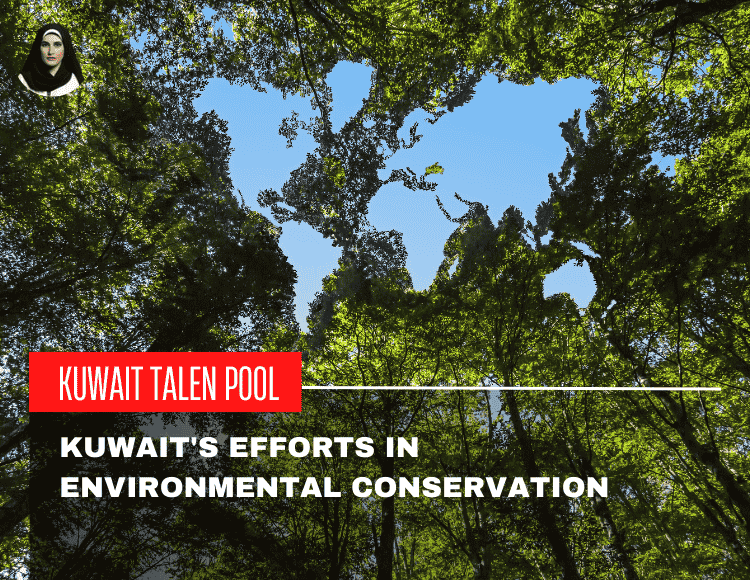Kuwait, a small nation on the Arabian Peninsula, faces unique environmental challenges due to its dry climate and reliance on fossil fuels. Understanding the urgent need for environmental protection, Kuwait is working hard to preserve its natural resources, cut its carbon emissions, and support sustainable development. This article looks at Kuwait’s efforts, strategies, and the obstacles it faces in environmental conservation.
Historical Context
Kuwait’s early focus was on the environmental impact of oil drilling and production. Oil spills and air pollution were major threats to the country’s ecosystems and public health. Over time, Kuwait has shifted to a more comprehensive approach to environmental protection, adopting international best practices and tougher regulations.
Key Environmental Challenges
- Water Scarcity Kuwait struggles with a severe water shortage due to its limited freshwater resources. Desalination plants provide much of the drinking water, but they consume a lot of energy and have environmental impacts.
- Air Pollution Burning fossil fuels for energy and transportation has led to significant air pollution in Kuwait. Pollutants like particulate matter, nitrogen oxides, and sulfur dioxide affect air quality and public health.
- Waste Management Rapid urban growth and higher consumption rates have led to waste management issues. Kuwait lacks sufficient recycling facilities, and the existing waste management infrastructure is inadequate, leading to environmental pollution.
- Biodiversity Loss Kuwait’s desert and coastal ecosystems support a variety of plant and animal species. However, habitat destruction, pollution, and overuse have endangered these species and disrupted biodiversity.
Government Initiatives and Policies
National Environmental Action Plan
Kuwait has developed a National Environmental Action Plan outlining its environmental goals and strategies. This plan addresses key areas such as air quality, water conservation, waste management, and protecting biodiversity.
Regulatory Framework
Kuwait has enacted laws to regulate activities that impact the environment. These laws cover emissions, waste disposal, and natural resource use to ensure environmental protection.
Sustainability and Green Building Standards
The government promotes sustainable building practices. Green building standards and incentives encourage the construction of energy-efficient and environmentally friendly buildings.
Major Conservation Projects
- Desert and Coastal Restoration: Kuwait is working on restoring damaged desert and coastal areas. These projects include reforestation, creating new habitats, and controlling erosion.
- Marine Conservation Initiatives: To protect its marine environment, Kuwait has set up marine sanctuaries and implemented measures to preserve coral reefs and marine species.
- Renewable Energy Investments: The government is investing in renewable energy sources like solar and wind power to reduce reliance on fossil fuels and combat climate change.
Community and Private Sector Involvement
Public Awareness Campaigns The government runs public awareness campaigns to educate people about environmental issues and promote sustainable living practices.
NGOs Non-governmental organizations (NGOs) play a crucial role in Kuwait’s conservation efforts. They conduct research, run conservation projects, and advocate for stronger environmental policies.
Private Sector Contributions Many companies in Kuwait are involved in environmental conservation through corporate social responsibility (CSR) initiatives. They adopt sustainable practices, support conservation projects, and work to reduce their environmental impact.
International Collaborations
Kuwait engages in regional and global environmental initiatives. By collaborating with international organizations, Kuwait shares knowledge, gains expertise, and addresses cross-border environmental issues.
Future Directions
Kuwait is exploring new technologies and methods to improve its environmental conservation efforts. The country is setting ambitious goals to build a sustainable and resilient society.
Conclusion
Kuwait is making significant strides in environmental conservation. By tackling its major environmental challenges and embracing sustainable practices, Kuwait aims to create a greener future. The ongoing efforts of the government, community, and private sector are crucial for achieving these goals.

